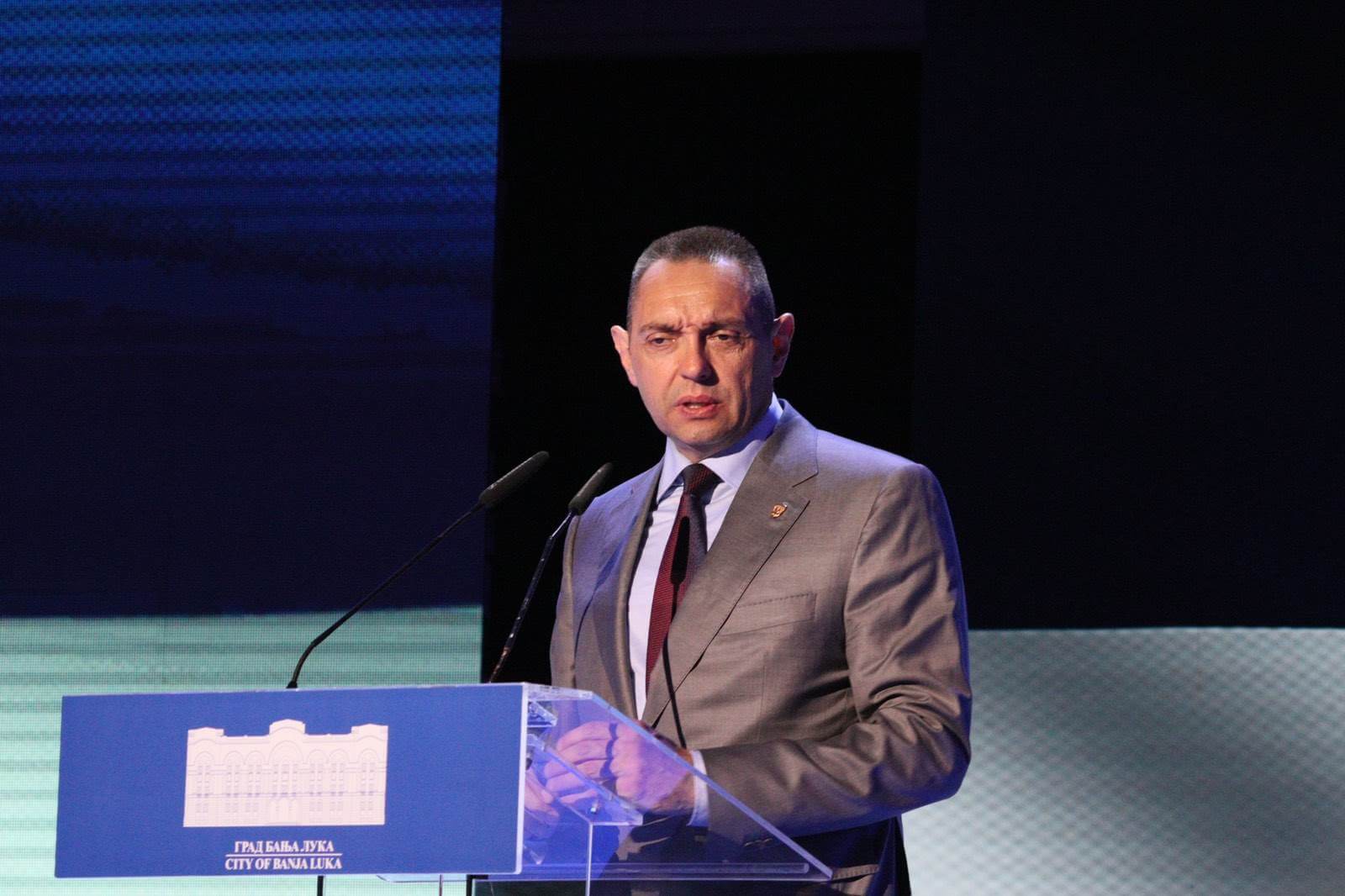In response to the United States’ (US) criticism of his statement regarding the establishment of a “Serbian world” on Monday, Serbia’s Minister of Interior, Aleksandar Vulin, reiterated that the “natural process of unification of Serbs” will be “completed peacefully, without violence and conflict.”
In an interview with state-controlled daily Politika on Sunday, Vulin stated, “The only way for the Balkans to remain stable is for the Serbs to live in one state.” The US Embassy in Serbia condemned his remarks, tweeting that they were “not in accordance with the Dayton Agreement and contradict Serbia’s integration into European structures.”
Dejtonski mirovni sporazum čuva mir i stabilnost. Sve vlade i svi predsednici Srbije su ga podržali. Komentari ministra unutrašnjih poslova o ujedinjenju svih Srba u jednu državu nisu u skladu sa Dejtonskim sporazumom i protivreče integraciji Srbije u evropske strukture.
— Američka ambasada (@USEmbassySerbia) July 11, 2022
The US-brokered Dayton Agreement of 1995 came after more than three years of war that killed 100,000 and displaced two million people in the 1990s. It was a peace deal between the Serbs and Croats that established the nation of Bosnia and Herzegovina (BiH) composed of two parts—the Serb-dominated Republika Srpska (RS), and the Croat-Bosniak-populated Bosnia-Herzegovina (BiH).
In this regard, Vulin also admitted that he was quite encouraged by Washington’s stand because it meant that the US will ask Bosnia’s Party of Democratic Action (SDA) chairman, Bakir Izetbegović, to delete the abolition of RS from his manifesto. He added that the US embassy should restore RS’ powers and ensure that they are implemented according to the Dayton Accords.
Vulin also rhetorically asked why Serbs can be united in the European Union, which Serbia has applied to join, but not “in a common state.”
“I know that I dream of unifying the Serbs, just like all my ancestors dreamed,” Vulin remarked, adding, “America is proud of the ‘American dream,’ let us Serbs have our own dream. America became great because of a dream, why should Serbs be denied the right to dream and be great.”
When @JosepBorrellF @vonderleyen @eucopresident keep appeasing #Serbia instead of imposing sanctions, Serbian politicians openly threaten with war.
— Haris Alisic (@HarisAlisic) July 10, 2022
Vulin: Jedini način da Balkan ostane stabilan je da Srbi žive u jednoj državi https://t.co/3drev1IdhU
During the 22nd session of the Native Assembly in Bukovac near Novi Sad last month, Vulin declared that “the creation of the Serbian world is a process that cannot be stopped.” “The Serbian world means that the Serbs are a single political people, that means that we decide on the most important national issues together, that means that we are always there with our Serbia, just as Serbia is with us no matter where we live,” he stressed.
Vulin also claimed that “all those who think that there are no Serbs and that there is no Serbian world or that there should not be one, they should […] realise that they are terribly wrong.”
Against this backdrop, German High Representative for Bosnia Christian Schmidt said in May that Bosnian Serbs are trying to secede from BiH as the country faces its worst political crisis in over 25 years. Schmidt, the official in charge of overseeing the 1995 Dayton peace accords, told the United Nations Security Council (UNSC) that “citizens of the country and even international media have speculated about the possibility of another war.”
The accords also established joint central institutions to ensure that the two entities are bound together and stipulate that both sides must agree to any major decision, thereby ensuring that there is no room for any unilateral action. However, the RS government, led by Milorad Dodik, has taken several measures aimed at undermining the stability of BiH and the Dayton Accords.
In February, the Bosnian Serbs approved a draft law to install a separate judiciary for Srpska, which drew criticism from the West, particularly the US, which has accused Dodik of threatening the stability and territorial integrity of BiH. The US has also said that Dodik is pursuing a “divisive” ethno-nationalist policy that threatens to push BiH into greater instability.
Dodik has repeatedly threatened a Serb secession from BiH in recent months, placing the country in its biggest political crisis since the end of the war in the 1990s. He wants to roll back the reforms giving all the power to regional leaders, thereby jeopardising the Dayton Accords.

